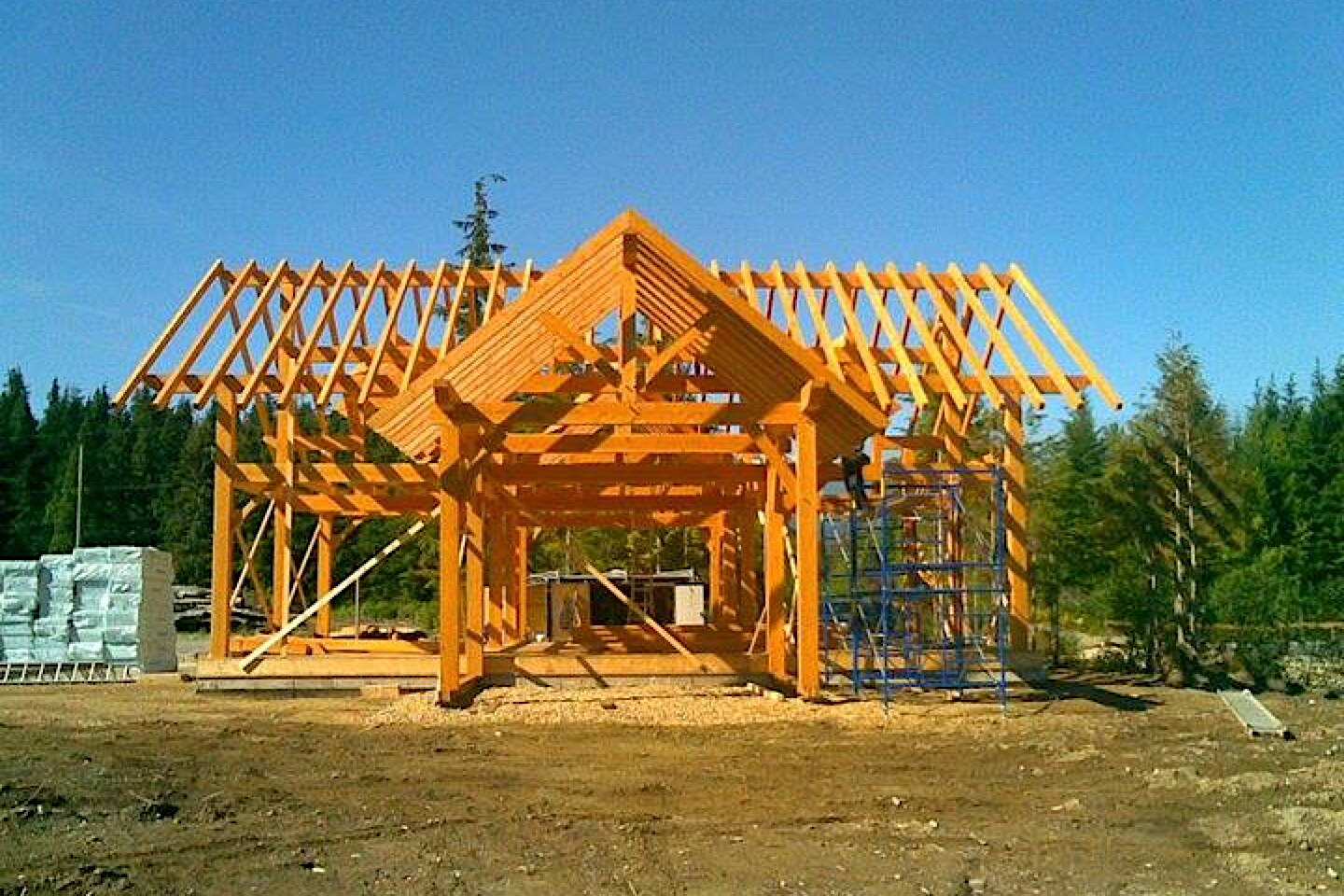A $2 million grant intended to help more than 100 Southeast Alaska families with housing loans and other assistance has been awarded to the Tlingit Haida Regional Housing Authority, officials said Monday.
The grant was part of $20 million awarded in the 2023 Housing Affordability Breakthrough Challenge, sponsored by the The Wells Fargo Foundation and Enterprise Community Partners, according to an Enterprise Community press release. Six national winners are receiving $2 million to $3 million in grants, plus “support from peers and industry experts to scale new strategies aimed at making homes more accessible and affordable.”
“The wide range of winning solutions include a workforce training program that prepares students for homeownership; a new way of financing housing in rural communities like the Mississippi Delta; and a new construction technology that reduces the carbon footprint of multifamily buildings,” the release notes.
The grant to Tlingit Haida will be used for the housing authority’s Success Starts With Me Home Ownership Program (SSWM), an effort started after the onset of the COVID-19 pandemic that “bridges the gap between traditional mortgage loans and the financial needs in rural Alaska to provide low-income tribal citizens access to homeownership on tribal lands,” according to an official description of the program.
The newly awarded grant is “great money because it’s flexible money,” said Jacqueline Pata, president and CEO of the housing authority, in an interview Monday.
“It’s not tied to what a lot of the other programs we use — our HUD programs, we use a lot of those programs — it doesn’t have all the same restrictions as that,” she said.
“We search for capital everywhere that we can. And then as we work through our client pool we try to identify that client and their needs, and their income and other kinds of things, and best fit them to whatever pools of funds we have.”
A page at Enterprise’s website dedicated to the Tlingit Haida grant notes 70% of tribal citizens served by the housing authority are renters, compared to 36% of the population statewide and nationally.
“Until the Tribes collectively agreed to make homeownership a key priority in 2019, no new affordable housing had been built in the villages in 20 years,” an explanation of “the challenge” facing the housing authority notes. “While Tribal citizens across Southeast Alaska own land, it has remained undeveloped for years.”
The summary notes the housing authority serves 14 tribes in small village communities throughout Southeast Alaska.
“The authority is partnering with Haa Yakaawu Financial Corporation to offer Tribal citizens throughout Alaska’s southeastern panhandle a personalized pathway to homeownership,” the site notes. “Tailored down payments, mortgages, and sweat equity options meet potential homeowners’ unique profiles. A foreclosure mitigation plan protects again the unspeakable threat of loss of Tribal land.”
Competition for the grant was intense due to the number of applicants and quality of projects proposed, Pata said. But she said that means being among the recipients will have payoffs that go beyond the funds.
“We had to go to D.C. and we had to do these presentations, and there were all these amazing innovations from people across the country,” she said. “And when we left that we thought for sure we weren’t even in the category of consideration. And so we were really surprised, but honored to be considered. And I think it’s important for rural America, rural Alaska to have that level of being able to compete in that kind of an arena.”
“But I think it also puts you in a cadre of folks where you can get other connections with other funding sources or technical assistance. And so it kind of elevates our access to those resources. So the capital is amazing, it’s gonna be very helpful. But the access is equally so.”
The first people to become homeowners under the SSWM program occurred in early 2022, Pata said. She said the new grant funds should be immediately available, but despite a goal of helping more than 100 households there isn’t a designated list of who those people are yet.
“We’ve been doing our financial education classes, and getting more and more people participating, and preparing themselves for homebuyer readiness,” she said. “And as we look to doing some of our larger projects — we had the smaller ones in the villages that we had been doing, like two houses at a time — but we still have our larger projects in Juneau, for example…So there’s a lot there’s a lot of moving pieces and you’d never get one source of funds to be able to cover all your needs, you have to be creative. And this was one of those creative approaches.”
• Contact Mark Sabbatini at mark.sabbatini@juneauempire.com or (907) 957-2306.

